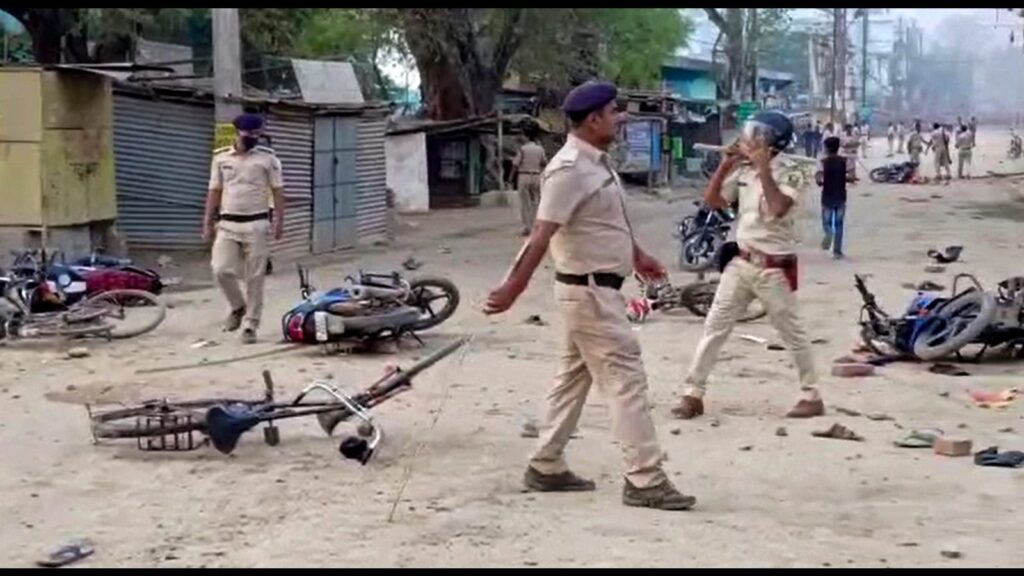A string of clashes over the past week has marred the celebrations of Ram Navami across the country and ratcheted up political temperatures, especially in West Bengal and Bihar. In the former, 10 people were hurt after two groups attacked each other during a Ram Navami procession at Shibpur in the Howrah district. Eight vehicles were torched and 45 people arrested, even as the tension refused to dissipate a day after the violence. In Bihar, Sasaram and Nalanda districts were rocked by stone pelting and clashes, prompting the government to shut down internet services and educational institutions. In Sasaram, a bomb exploded in a hut near a mosque, injuring six people. A 16-year-old boy was killed, and three people, including two policemen, were injured in Nalanda.
In both states, ruled by parties opposed to the Bharatiya Janata Party (BJP), the flare-ups have stoked a political blame game between the state government and the BJP. This is an avoidable eventuality. On Ram Navami, clashes were also reported from Maharashtra, Gujarat and Karnataka, indicating that these were localised breaches in law and order, and should be treated as such. The authorities are responsible for ensuring the security of religious processions and safeguarding the right of people to practise the faith of their choice. At the same time, the administration has the task of ensuring communal amity, and not letting the law and order situation deteriorate through provocative rumours, slogans or gestures. The police, therefore, must strive to rise above the partisan rancour shrouding these incidents, ensure that those responsible for the violence are booked without fear or favour, and gaps in arrangements exposed by the disturbances are plugged on priority. At the same time, political parties would be well advised to take a step back from the issue.
In the run-up to the general elections next year, India is likely to see a surge in efforts to exploit communal rifts and engineer polarisation for politically expedient reasons, especially by fringe elements and leaders. Such attempts, however, weaken the country’s social fabric. It is, therefore, contingent on the political class and the law enforcement establishment to stick to constitutional tenets, and not allow violence, or polarisation in the name of faith.
Enjoy unlimited digital access with HT Premium
Subscribe Now to continue reading


